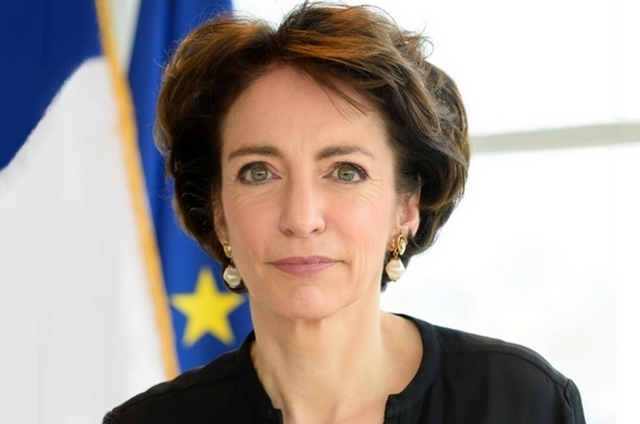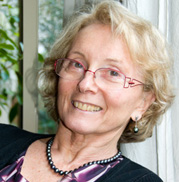A public debate on vaccines in France will be organised in several stages:
- March: an internet platform will collect contributions from the public, health professionals and institutions.
- May: three judges, a health professional and a scientific expert will analyse the contributions.
- October: the opinion of this expert group – and the contributions they have reviewed – will be published and debated.
- December: proposals on changing vaccine policy will be submitted to government.
It is expected that the Minister will consider three options: retain mandatory vaccination; revise the list of mandatory vaccines; or remove the obligation to vaccinate against polio, diphtheria and tetanus while strengthening diseases surveillance systems.
As part of a wide-ranging review of immunisation policies, the French government is holding a year-long debate on mandatory vaccination, and providing the public and health professionals with clear and accurate information on vaccines.
The move comes amid concern that hesitancy could be rising among the general public, driven by scientifically unsound rumours and complacency about the seriousness of vaccine-preventable infectious diseases.
A strong majority of people in France follow the recommended immunisation schedule – which itself was the subject of a well-received update two years ago – but trust in authorities and politics are said to be on the wane.
 Marisol Touraine, the minister responsible for social affairs, health and women’s rights, decided something must be done to engage the public in a discussion about the importance of immunisation to public health.
Marisol Touraine, the minister responsible for social affairs, health and women’s rights, decided something must be done to engage the public in a discussion about the importance of immunisation to public health.
She said that having a list of ‘recommended’ vaccines and a short list of three ‘obligatory’ vaccines may cause confusion, perhaps even undermining the importance of vaccines which are only recommended but not mandatory.
A public consultation on the issue is to run all year, according to Minister Touraine. The citizen consultation will be run by an independent steering committee chaired by Professor Alain Fischer, a paediatrician and immunologist.
It follows an official report on vaccine policy in France written by Sandrine Hurel, a member of the French National Assembly who argues that “the status quo is no longer tenable”. That report made a range of recommendations and questioned the merit of continuing with mandatory vaccination against polio, diphtheria and tetanus.
The government also intends to launch a website with easily understandable and accessible information about vaccines. The general public and health professionals will be provided with tailored factual information on the safety and effectiveness of vaccines – a move designed to counter ongoing myths circulating online about the safety of vaccines and their ingredients.
“Reliable and transparent information on vaccine effectiveness is essential to strengthening the vaccine uptake,” Minister Touraine argued.
A new National Public Health Agency, to be officially created on 1 April through the merger of three existing public bodies, will be responsible for setting up the internet platform. It is expected to serve as a central hub of information which will be kept up to date and answer questions from the public.
The Agency is also expected to produce a guide for social network users on “scientifically sound” sources of information on vaccines.
Read: HPV vaccines are safe – but search engines mislead parents
Meanwhile, Minister Touraine is quoted in French media as saying she is awaiting proposals from vaccine manufacturers on ways to address shortages of supply. She met industry representatives before Christmas to discuss “unacceptable” supply issues.
France has experienced delays and shortages of several vaccines in recent years and wants guarantees that recommended vaccines will be available to the public. “We are in a serious situation with regard to certain essential vaccines,” said the Minister.
‘Public consultation may be unwise’
 Professor Catherine Weil Olivier welcomed the more proactive approach taken to vaccination policy but expects very little political progress this side of the next French Presidential Election.
Professor Catherine Weil Olivier welcomed the more proactive approach taken to vaccination policy but expects very little political progress this side of the next French Presidential Election.
“The rate of vaccine hesitancy has increased in recent years. This is the first open and clear review of vaccine policy in France for a very long time,” she said. “My own view is that no strong position will be taken in the next 12 to 18 months and it will be left to the next government.”
France has seen a particular hesitancy around some vaccination programmes (hepatitis B and HPV) – due to rumours which have long been scientifically shown to be unfounded. While vaccination coverage is good among infants because vaccine-preventable diseases are covered by a widely-used pentavalent or hexavalent vaccine, adolescents are more likely to be at risk due to much lower coverage rates.
Professor Weil Olivier expressed some reservations about the planned public consultation. “I’m not so sure that organising a large consultation is very wise,” she said, noting that an online petition by a surgeon with anti-vaccine views has attracted hundreds of thousands of signatures.
These highly motivated groups and individuals may see the consultation as an opportunity to attack vaccination in general – or at least create a sense of uncertainty in the public mind about vaccine safety – while the silent pro-vaccine majority may tend not to engage.
Trust in politicians among the general public in France (and elsewhere) has waned in recent times so there is no guarantee that repeated public endorsement by political figures will sway vaccine-hesitant individuals.
Regarding a more systematic approach to online communication, she noted that real-time debunking of vaccine rumours is already in operation but can always be improved.
However, Professor Weil Olivier said plans and actions to improve regular communication with health professionals and the public could be valuable. “It was accepted after the flu pandemic that failing to take account of the doctors was a major error. A short news bulletin for doctors and reminders for the public could help to create a dynamic around vaccination.”




